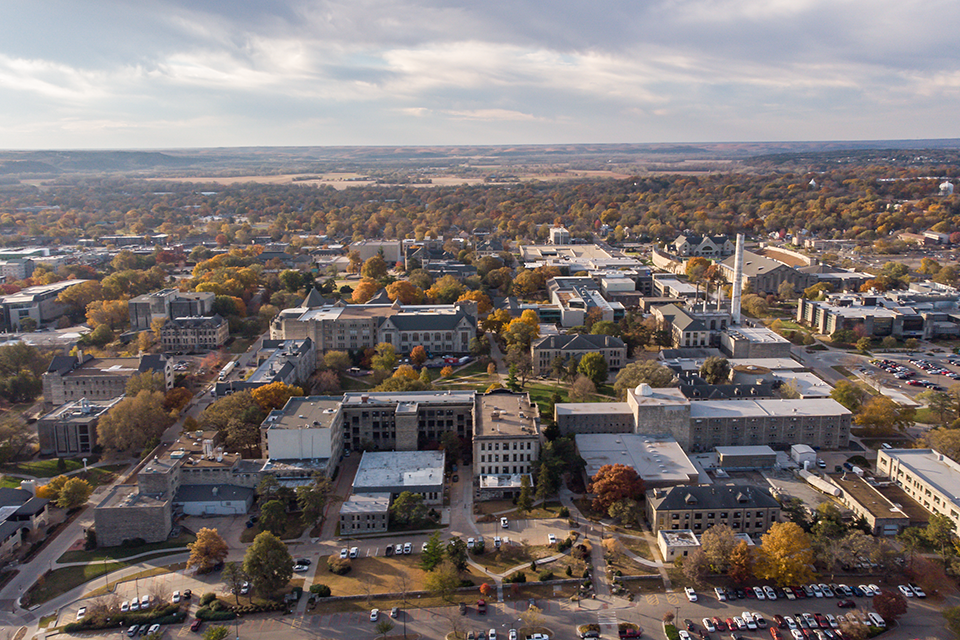One K-State: A unified approach to excellence and efficiency

One K-State creates opportunities in alignment with the K-State Next-Gen strategic plan and momentum for foundational improvements.
Kansas State University is advancing a more integrated culture through One K-State — a guiding philosophy and operational framework designed to strengthen collaboration across campuses. One K-State emphasizes that while colleges, units and offices may operate differently, all contribute to the same mission.
"Imagine a K-State where every college, every department, every person is aligned around a shared vision of what we can accomplish together. That's One K-State," said K-State President Richard Linton.
The Next-Gen K-State strategic plan embraces operational excellence as a fundamental mindset, viewing processes, systems and culture as essential strategic assets. Recognizing the significant role of physical infrastructure, One K-State highlights its importance in recruiting and retaining faculty, staff and students. This initiative elevates the focus on operational excellence alongside the other themes and priorities outlined in the strategic plan.
"When we recognize that our individual strengths multiply when we're united by purpose, we operate as one university," Linton said. "We solve problems faster, we dream bigger, innovate bolder and create impact that extends far beyond our campuses. That's the tomorrow we're building — one where collaboration isn't just encouraged, it's woven into the very fabric of how we do our work. Because the best version of K-State is all of us, together, achieving something none of us could accomplish apart."
This universitywide focus ensures that decisions and updates — from communication practices to HR and financial systems — have the institution's collective success in mind. By establishing a culture of continuous improvement and excellence across operations, K-State can continue to support and improve teaching, research and service.
A visible example of one K-State in action is the new time and leave system launching across the university. Beginning on Oct. 26, all leave requests will be submitted through the new system, replacing E-Time in HRIS and several other systems previously used by different units.
The new system standardizes time tracking, leave requests and approved hours, regardless of department or employment type. This transition supports K-State's goal of creating consistent, efficient operations that enhance the employee experience.
"At the heart of it, this initiative is about taking care of our people by ensuring timely, accurate pay and a smoother pay-processing experience," said Amanda McDiffett, assistant vice president of human resources operations strategy. "While there are many process improvements in the project, it is highly people-centered and reflects our K-State values."
McDiffett said the update aligns closely with Next-Gen K-State's commitment to operational excellence. "By streamlining operational work, we can be more focused on strategic, high-impact efforts that will truly move K-State forward," she said.
One K-State represents a long-term commitment to alignment, efficiency and shared purpose. Through this effort, K-State continues to strengthen its foundation as a unified, forward-focused university that is transforming to serve new kinds of learners, solve grand global challenges and contribute to the state's economic prosperity.